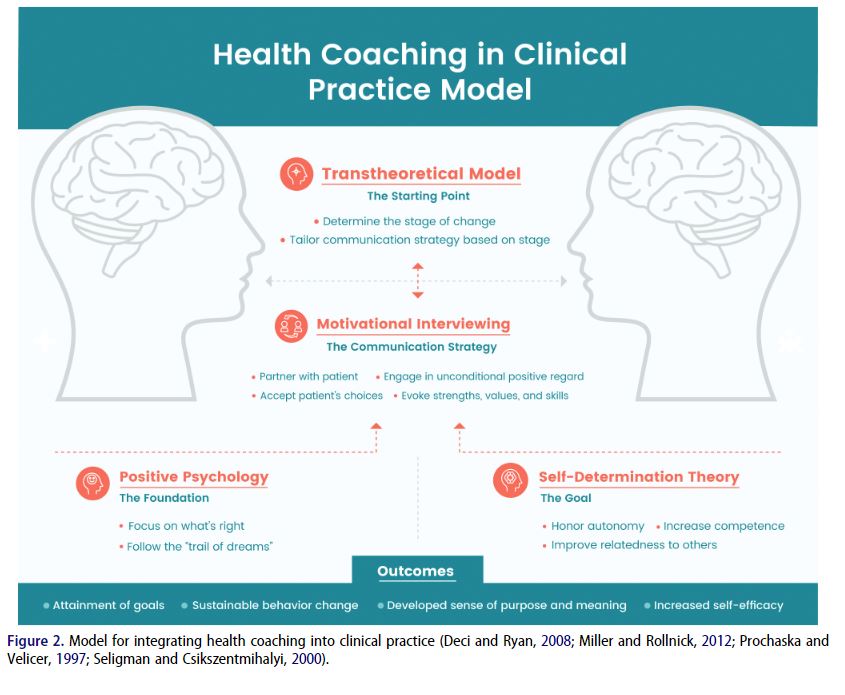In order to support behavior change, clinicians should focus on building intrinsic motivation, promote and honor patient autonomy, increase feeling of competence, and increase social support. Positive psychology and motivational interviewing are two tools clinicians can use to support behavior change.
In positive psychology, attention is shifted away from pathology, pain and disability, and is focused on positive aspects of a patient's life, as well as a vision of the good life. Positive psychology does not ignore hurdles patients have to overcome in life, but rather tries to understand patients’ resources, hopes, and dreams to elicit positive emotions. Positive emotions, in turn, can unlock keys to successful behavior change, such as increasing individual competencies, broadening thought-action repertoires, and promoting the discovery and development of patients' strengths and resources.
The change of paradigm from a disorder fixer to a health coaching function requires clinician to communicate effectively with their patients. One evidence-based communication strategy that can assist clinician in achieving that goal is motivational interviewing. Motivational interviewing is a collaborative conversation style that promotes shared decision-making and strengthens a patient's own motivation and commitment to change. It includes four key domains:
-
partnership (patients are actively involved in decision-making)
-
acceptance (clinicians accept patients values, motivations, worth, and autonomy)
-
compassion (priority is given to patients' needs)
-
evocation (clinicians evoke change using skills, abilities, and strengths that patients already possess)
Communication during the clinical encounter should focus on building trust and collaboration between clinicians and patients, eliciting patients own motivations and strengths to change. Processes that allow such a patient-oriented communication style include open-ended questions, affirmations, reflections, and summaries, all of which are core competencies to motivational interviewing.

From Rethorn, Z., Bezner, J., & Pettitt, C. (2021). From expert to coach: health coaching to support behavior change within physical therapist practice. Physiotherapy Theory And Practice, 1-16. doi: 10.1080/09593985.2021.1987601
Incorporating health coaching into clinical practice require clinicians to develop skills in applying a patient-centered approach, assisting patients to identify their own motivations and goals, helping patients in identifying useful strategies for change and monitoring their own progress, and accompanying patients on their journey by providing relevant knowledge and support.

From Rethorn, Z., Bezner, J., & Pettitt, C. (2021). From expert to coach: health coaching to support behavior change within physical therapist practice. Physiotherapy Theory And Practice, 1-16. doi: 10.1080/09593985.2021.1987601
References
1. Rethorn, Z., Bezner, J., & Pettitt, C. (2021). From expert to coach: health coaching to support behavior change within physical therapist practice. Physiotherapy Theory And Practice, 1-16. doi: 10.1080/09593985.2021.1987601
2. Fredrickson BL, Branigan C. Positive emotions broaden the scope of attention and thought-action repertoires. Cogn Emot. 2005;19(3):313-332. doi:10.1080/02699930441000238


